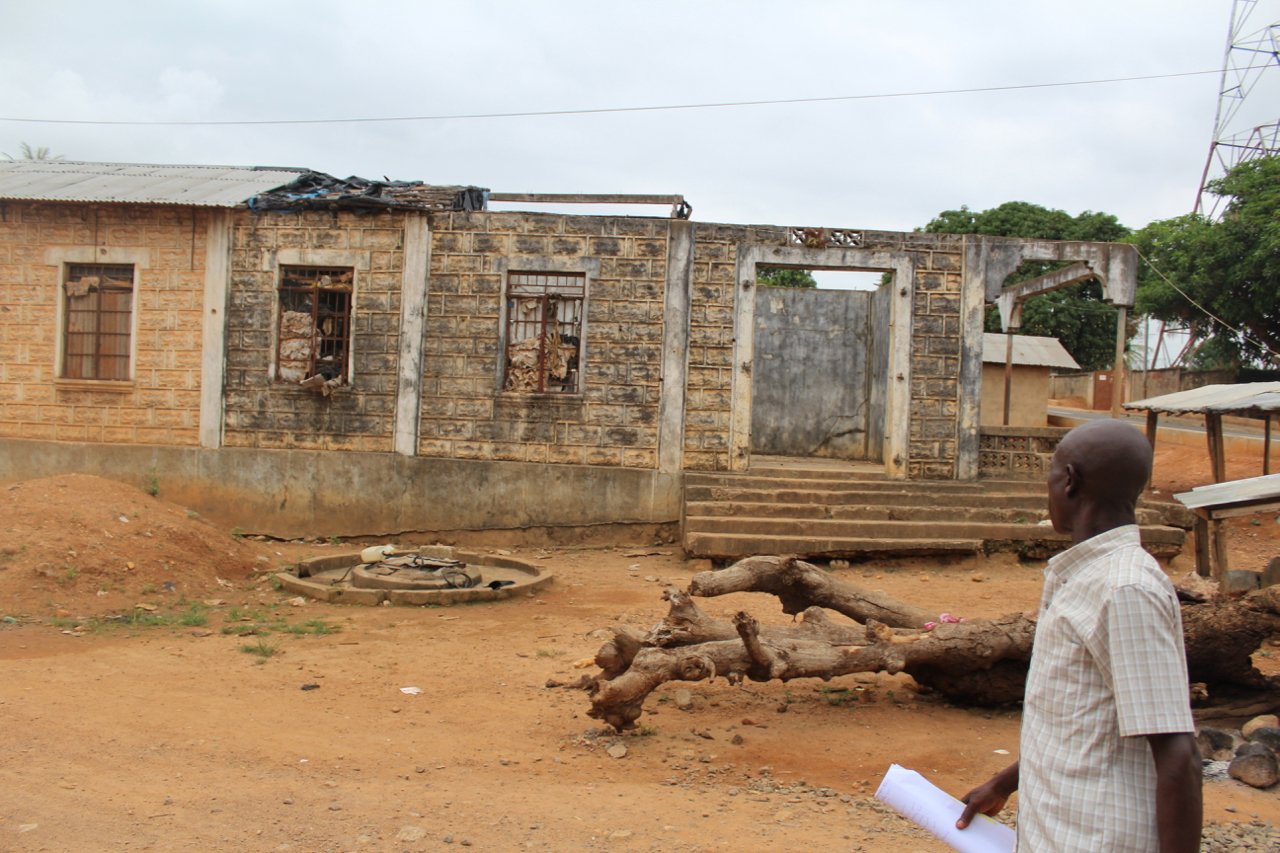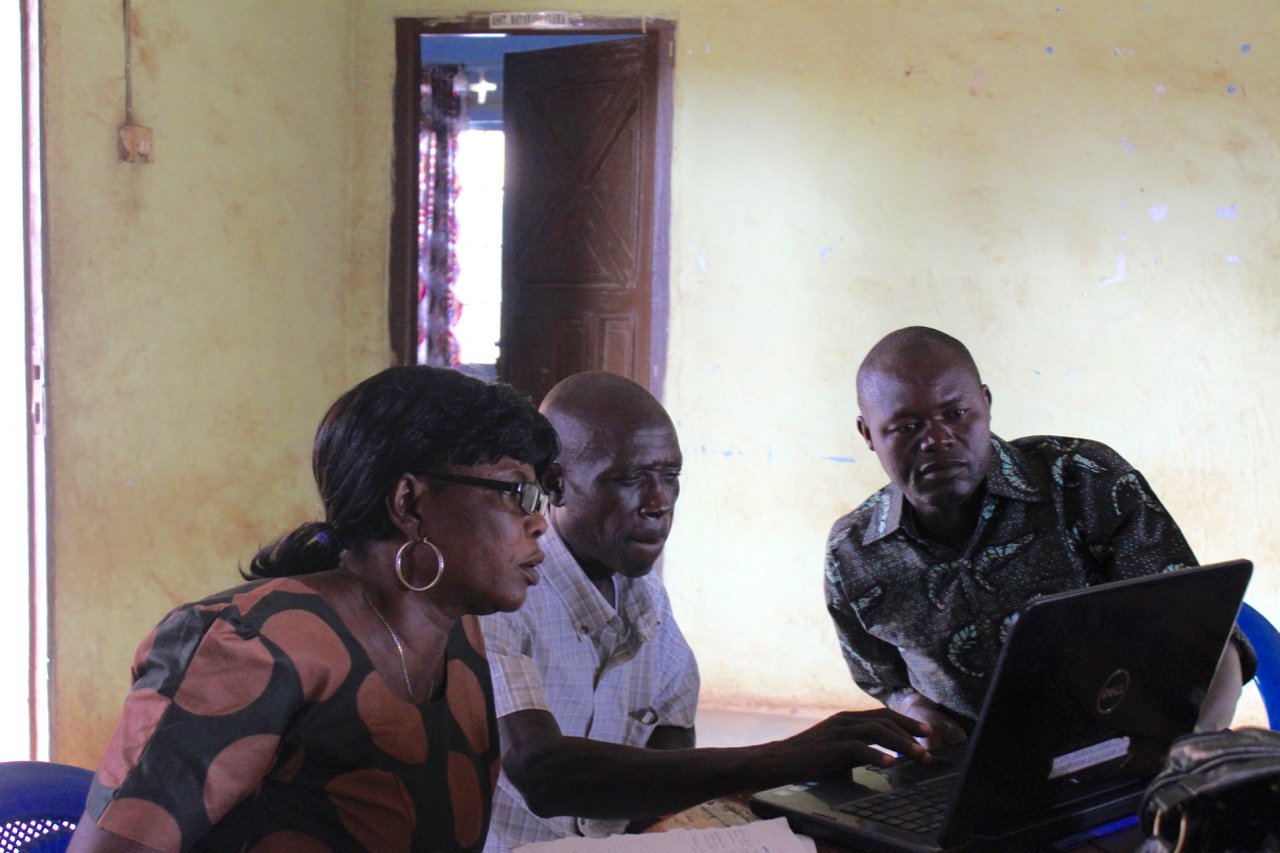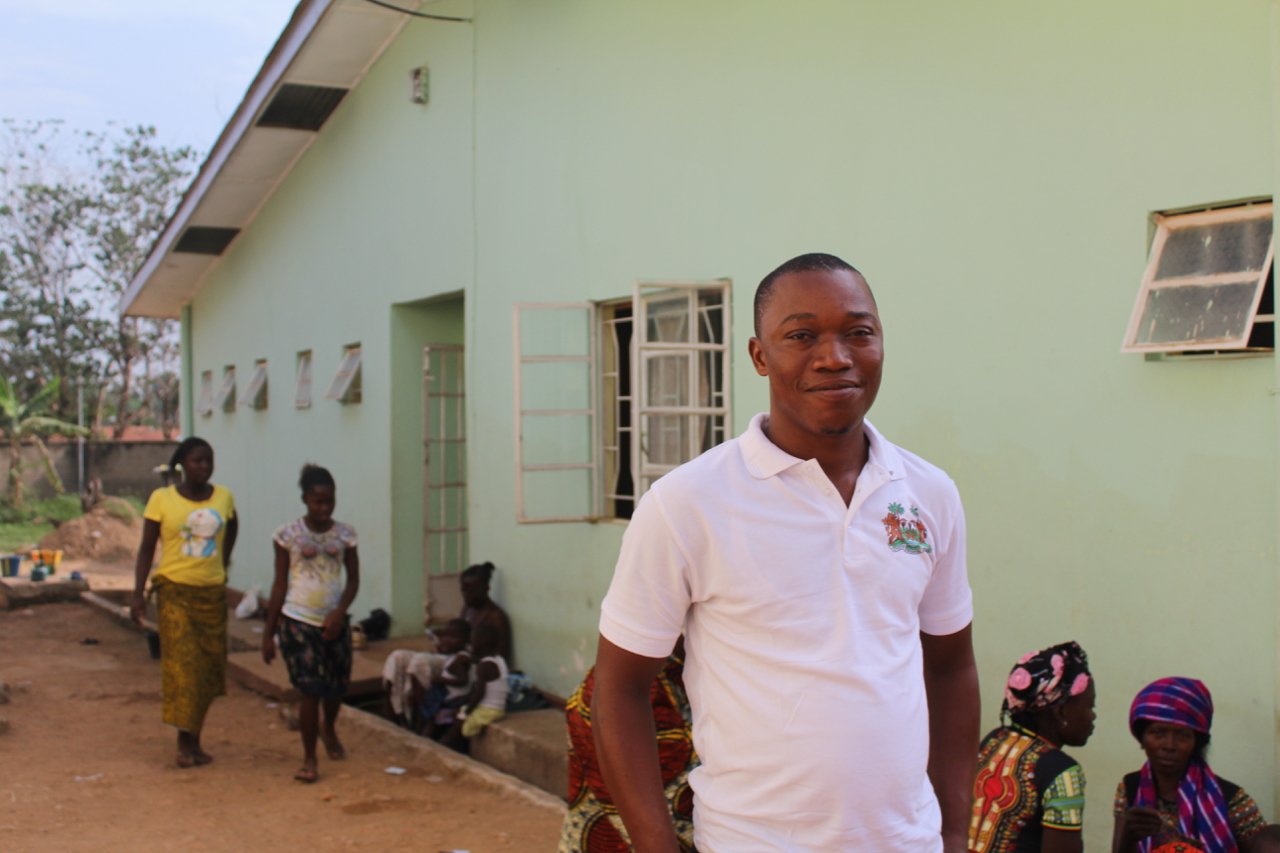During the Ebola outbreak hospitals were seen as dumping grounds for the dying
The history of Africa’s oldest mental hospital is written on the walls of its isolation units, desperate messages chiselled into the wood like scars.
“I CAME HERE FOR I DON’T HAVE ANY MONEY,” reads one, the letters crammed tightly against each other in one corner of the room. “PEOPLE WANT ME TO RUN FROM MY FATHER’S HOUSE,” says another, sprawled against an entire wall in frantic, uneven script.
“YOU GO NOWHERE,” announces a third. “STAY OUT.”
Indeed, since the hospital’s inception in the early 19th century, when one European visitor wrote of the “yard appropriated for unfortunate lunatics” perched high on a hill above the eastern Freetown neighbourhood of Kissy, most Sierra Leoneans have aspired to do exactly that.
Little help for the forgotten people of Sierra Leone
[multimedia source=”http://bhekisisa.org/multimedia/2017-01-17-little-hope-for-the-forgotten-people-of-sierra-leone”]
The country’s only mental healthcare facility, the Sierra Leone Psychiatric Hospital, is known in the local Krio language as the “Crase Yard” or “place for crazy people”. During Sierra Leone’s brutal civil war, heavily armed rebel fighters got as far as the staff quarters before turning back, too afraid of what they might find inside, doctors and nurses at the hospital say.
For nearly 200 years this has been less the kind of place where you go to get better than the kind of place where you go when people have decided you will never get better.
At the time the world’s worst Ebola outbreak began there in early 2014, Sierra Leone had just 136 doctors working in the public sector, according to the World Health Organisation’s global health observatory data repository — a massive shortfall for a population of six million. There was only one psychiatrist, Edward Nahim, a wry, Soviet-trained 70-year-old who spent his mornings scribbling prescriptions in the foyer of the Kissy hospital, where many patients were kept chained and treatment consisted of little more than a daily dose of expired anti-psychotics. Electricity flickered on and off and rusting buckets served as fetid makeshift toilets on the days the pipes ran dry, which was most of the time.
 A decade-long civil war saw more than 70 000 people killed and hundreds of thousands maimed and left the country in ruins before ending in 2002. (Ryan Lenora Brown)
A decade-long civil war saw more than 70 000 people killed and hundreds of thousands maimed and left the country in ruins before ending in 2002. (Ryan Lenora Brown)
Although the mental health toll that Ebola exacted — depression, anxiety and post-traumatic stress disorder — was massive, the hospital’s fearsome reputation meant that few of those affected even considered looking there for support. Hospitals, in the early days of the outbreak, were seen at best as dumping grounds for the dying, and at worst the places that had made them sick. Those suffering the disease’s emotional side effects viewed the psychiatric hospital in a similar light.
“Because we have so few professional resources, people are used to understanding mental illness in their own way and most would never even think of coming to a hospital for psychiatric treatment,” says Stephen Sevalie, who earlier this year became the country’s second local psychiatrist, working for the Sierra Leone Armed Forces.
A lack of formal services places the burden on communities
In part, Nahim says, that may not be entirely a bad thing. A country like Sierra Leone needs fewer formal mental health services than Western nations, he explains, because its people are able to lean so heavily on community structures — families, traditional healers and religious leaders — during times of emotional distress.
“We do counselling, though it’s not the type of counselling they do in America or Europe,” Nahim says. “Here, if you have a problem, someone talks to you. Your parents talk to you. Your church talks to you. Your traditional healers treat and counsel you. In America they need professional counsellors because no one talks to anybody. If you try to talk to somebody, he’ll probably call the police.”
Still, a lack of formal treatment options for those struggling the most has bred desperate circumstances. Bars selling sachets of local gin and whisky costing five leones — the equivalent of about eight American cents — are crowded long before noon and weather-battered men wander the streets of Freetown, mumbling gibberish and begging for change and discarded food. Drug abuse is rampant, particularly among the war’s ex-combatants, many of whom were children when they fought.
For those working in the mental health sector in Sierra Leone, this isn’t the way things were supposed to be.
In the years after the decade-long civil war, which, according to the United Nations Development Agency, saw more than 70 000 people killed and hundreds of thousands maimed by amputation before ending in 2002, international charities poured into Sierra Leone with promises to heal the country’s invisible emotional scars. A series of buzzword-studded initiatives touted community healing, psychosocial support and empowerment.
“Many of these programmes were really excellent,” says Florence Baingana, from the World Health Organisation’s Sierra Leone office. But they were also temporary. “You can’t run a mental healthcare system with outsiders — NGOs [nongovernmental organisations] have a life cycle; they come and they go.”
And mental health in particular proved a hard sell to international donors over the long term — the wounds it healed were largely invisible, and the progress undramatic and drawn-out.

The Community Association for Psychosocial Services (Caps), is a Sierra Leonean NGO that has provided counselling since the end of the war. (Ryan Lenora Brown)
Slowly, the international money drained away, says Edward Bockarie, executive director of the Community Association for Psychosocial Services (Caps), a Sierra Leonean NGO that has provided counselling since the end of the war. On a recent morning, counsellors at one of his regional offices in the eastern province of Kailahun hunched over a few shared computers, strategising on future projects. None of them had been paid for nearly six months, when their last spurt of funding ran dry.
“This is our initiative; we can’t just leave it,” says Maxwell Makieu, a counsellor who has worked with the association since its inception in a refugee camp in Guinea two decades ago.
Back then, he and the other Caps counsellors were refugees from Sierra Leone’s civil war, hired by an American nonprofit organisation called the Centre for Victims of Torture to provide peer counselling to others in the camp. When the centre retreated from Sierra Leone a few years later, its Sierra Leonean counsellors started their own group.
For the past decade, they have scraped together grants from the centre and other sources to keep their shoestring operation running in two districts in Sierra Leone’s war-wracked far east, counselling the vast swaths of the region’s population victimised by the war. That meant that when Ebola broke out three years ago they were among the only counsellors prepared to respond. Their staff were quickly scooped up by Doctors Without Borders and other international charities to work in their treatment centres and with healthcare workers.
But when the outbreak ended, predictably, so did most international interest in their work.
Down the road, at the local district hospital, however, there are flickering signals that some changes to the mental health system are at last being institutionalised.

Martin Senesie is Kailahun district’s first trained mental health nurse. (Ryan Lenora Brown)
Beside a maternity ward full of cooing babies and tut-tutting mothers sits the small but bright office of the district’s first trained mental health nurse, who arrived at the beginning of 2015 as part of a programme that placed 21 such nurses in local hospitals around the country.
Martin Senesie says the work, at times, feels never-ending. He has grown used to the whispers of “crase man doctor” he hears when he walks through town. His pay, which is about 750 000 leones — about $125 — a month, feels like a slight, given the many years he spent earning his qualifications. He often thinks of quitting.
Still, he admits, for the people of Kailahun this is better than nothing. Each month, dozens of Ebola survivors and their families queue in front of his office, seeking help for depression and anxiety. Without him, he wonders, where could they go?
“This is an opportunity for us — it could be the turning point,” says Sevalie.
“I hope that the enthusiasm that’s developed around mental health treatment in the context of Ebola will keep going. Whether Ebola is here or not, these systems are essential to have.”